August 17 stands as one of history’s most eventful days, witnessing the rise and fall of empires, groundbreaking discoveries, and moments that shaped our modern world across centuries of human achievement.

Politics and Government Events on August 17
1945 – Indonesian Independence Proclaimed

Sukarno and Mohammad Hatta boldly proclaimed Indonesia’s independence from Dutch colonial rule on this pivotal day. Their declaration ignited the Indonesian National Revolution that would reshape Southeast Asian politics.
The proclamation came just days after Japan’s surrender in World War II. This courageous act of defiance launched a four-year struggle that ultimately established Indonesia as a sovereign nation.
1947 – Radcliffe Line Revealed
The border between the newly created Dominions of India and Pakistan was officially announced to the world. Sir Cyril Radcliffe’s controversial boundary decisions would affect millions of lives across the subcontinent.
The partition line carved through Punjab and Bengal, dividing communities that had coexisted for centuries. This momentous announcement triggered one of history’s largest mass migrations and reshaped South Asian geopolitics.
1998 – Clinton Admits Lewinsky Relationship
President Bill Clinton acknowledged his “improper physical relationship” with White House intern Monica Lewinsky in taped testimony. Later that evening, he addressed the nation, admitting he had “misled people” about the affair.
The admission marked a turning point in the scandal that had gripped American politics for months. Clinton’s carefully worded confession would ultimately lead to his impeachment by the House of Representatives.
2004 – Serbia Adopts New State Symbols
The National Assembly of Serbia unanimously approved new national symbols for the country. “Bože pravde” became the official anthem while a new coat of arms was adopted nationwide.
These symbolic changes reflected Serbia’s efforts to establish its distinct identity following the dissolution of Yugoslavia. The new symbols represented the country’s aspirations for European integration and democratic development.
1945 – Puyi Renounces Manchukuo Throne
The last Emperor of China formally abdicated his throne as Kangde Emperor of Manchukuo at Talitzou. Puyi dissolved the Japanese puppet state and ceded its territory to the Republic of China.
This dramatic renunciation marked the end of Japan’s imperial experiment in Manchuria. Puyi’s abdication symbolized the collapse of Japanese influence in northeastern China as World War II drew to a close.
Military and Naval History on August 17
1914 – Battle of Stallupönen
German forces under General Hermann von François achieved a decisive victory over Russian troops commanded by Paul von Rennenkampf. The battle took place near modern-day Nesterov, Russia, marking an early German success on the Eastern Front.
This engagement demonstrated German tactical superiority in the war’s opening weeks. The victory boosted German morale while exposing weaknesses in Russian military coordination that would plague their forces throughout the conflict.
1942 – Makin Island Raid
United States Marines launched a daring assault on the Japanese-held Pacific island of Makin. This bold operation marked one of America’s first offensive actions against Japanese positions in the Pacific Theater.
The raid served as valuable reconnaissance for future amphibious operations while demonstrating American resolve. Though tactically limited, the mission provided crucial intelligence about Japanese defensive capabilities on Pacific islands.
1943 – Allied Forces Reach Messina

General George S. Patton’s U.S. Seventh Army arrived in Messina, Italy, followed hours later by Field Marshal Bernard Montgomery’s British Eighth Army. Their convergence completed the successful Allied conquest of Sicily.
This strategic victory opened the Mediterranean to Allied shipping and provided a launching point for the Italian mainland invasion. The capture of Sicily marked the beginning of Axis collapse in Southern Europe.
1943 – Operation Hydra Begins
The Royal Air Force launched Operation Hydra, targeting Germany’s V-weapon research facilities at Peenemünde. This marked the opening of Operation Crossbow, the strategic bombing campaign against Nazi rocket development.
The raid successfully disrupted German rocket production and delayed V-2 deployment by several months. This aerial assault demonstrated Allied determination to counter Germany’s technological weapons programs.
1943 – First Quebec Conference Opens
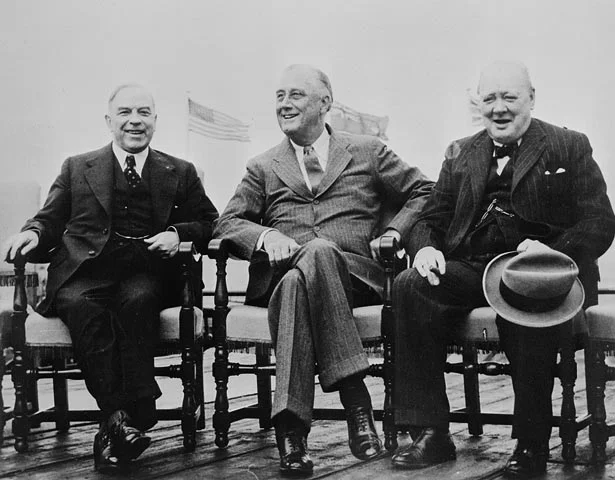
Winston Churchill, Franklin D. Roosevelt, and William Lyon Mackenzie King convened for crucial wartime strategy discussions. The conference addressed major decisions about the Pacific War and post-war planning.
Allied leaders coordinated their approach to defeating Japan while discussing atomic weapons development. The Quebec Conference strengthened Anglo-American cooperation and established frameworks for victory in both theaters.
Science and Discovery Milestones on August 17
1977 – Soviet Icebreaker Reaches North Pole
The Soviet nuclear icebreaker Arktika achieved a historic first by becoming the first surface vessel to reach the North Pole. This remarkable feat demonstrated Soviet mastery of Arctic navigation and nuclear marine technology.
The achievement marked a significant milestone in polar exploration and Cold War competition. Arktika’s successful journey opened new possibilities for Arctic shipping routes and resource exploration.
1970 – Venera 7 Launched to Venus
The Soviet Union launched Venera 7 as part of their ambitious planetary exploration program. This spacecraft would achieve the historic distinction of becoming the first to successfully transmit data from Venus’s surface.
The mission represented a crucial breakthrough in interplanetary communication and planetary science. Venera 7’s eventual success provided humanity’s first direct scientific data from another planet’s surface.
1958 – Pioneer 0 Launch Attempt

America attempted its first lunar orbit mission with the launch of Pioneer 0 using the inaugural Thor-Able rocket. Though the mission failed, it marked a significant step in American space exploration efforts.
This launch represented one of the earliest attempts by any nation to reach beyond Earth orbit. Despite its failure, Pioneer 0 provided valuable experience for future lunar missions and space technology development.
1978 – First Transatlantic Balloon Flight
Double Eagle II achieved aviation history by becoming the first balloon to successfully cross the Atlantic Ocean. The balloon landed in Miserey, France, after a 137-hour journey from Presque Isle, Maine.
This remarkable achievement demonstrated advances in balloon technology and human endurance. The successful crossing revived interest in lighter-than-air transportation and established new records for long-distance ballooning.
Cultural and Arts Events on August 17
1945 – Animal Farm Published

George Orwell’s masterpiece “Animal Farm” was first published, introducing the world to its powerful allegory of Soviet totalitarianism. The novella’s talking animals and revolutionary themes would become iconic in world literature.
The publication came as World War II ended and the Cold War began emerging. Orwell’s satirical masterpiece provided a prescient warning about the dangers of totalitarian government and political corruption.
Religious and Social Events on August 17
1953 – First Narcotics Anonymous Meeting

The inaugural meeting of Narcotics Anonymous took place in Southern California, launching a revolutionary approach to addiction recovery. This grassroots organization would transform how society addresses drug addiction and rehabilitation.
The meeting established principles of peer support and spiritual recovery that would spread globally. Narcotics Anonymous pioneered community-based addiction treatment and offered hope to millions struggling with substance abuse.
1915 – Leo Frank Lynched

Jewish American Leo Frank was lynched in Marietta, Georgia, after Governor John Slaton commuted his death sentence. This tragic event highlighted the dangerous intersection of antisemitism and Southern justice.
The lynching sparked national outrage and contributed to the founding of the Anti-Defamation League. Frank’s case became a symbol of prejudice and injustice that galvanized civil rights activism.
1961 – Peter Fechter Shot at Berlin Wall
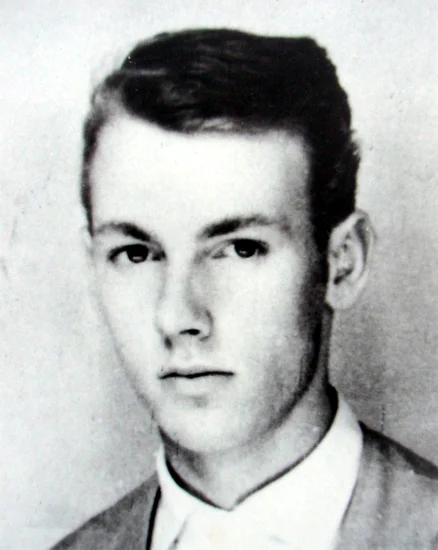
Eighteen-year-old Peter Fechter was shot while attempting to cross the newly constructed Berlin Wall, bleeding to death in the death strip. His tragic death became a powerful symbol of the Wall’s brutality.
Fechter’s death sparked international condemnation of East German border policies. His sacrifice highlighted the human cost of the Cold War division and strengthened Western resolve against communist oppression.
Business and Economic Events on August 17
1985 – Hormel Strike Begins
Workers at the Hormel meatpacking plant in Austin, Minnesota, launched a major labor strike that would capture national attention. The dispute centered on wage cuts and working conditions in the meatpacking industry.
The strike became a symbol of labor’s struggle against corporate cost-cutting in the 1980s. The lengthy conflict highlighted tensions between economic competitiveness and worker welfare in American manufacturing.
Transportation and Infrastructure on August 17
1959 – Hebgen Lake Earthquake Creates Quake Lake
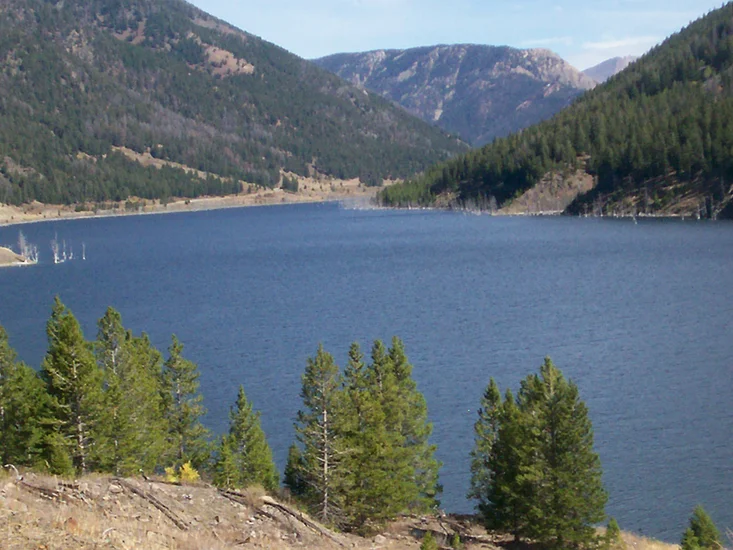
A magnitude 7.2 earthquake near Hebgen Lake in Montana triggered a massive landslide that formed Quake Lake. The seismic event dramatically altered the region’s geography and created a new natural landmark.
The earthquake demonstrated nature’s power to reshape landscapes instantaneously. Quake Lake became a tourist attraction and geological study site, illustrating the dynamic forces that continue shaping the American West.
1949 – Matsukawa Derailment Sabotage

Unknown saboteurs caused a passenger train to derail in Fukushima Prefecture, Japan, killing three crew members. The incident triggered intense political controversy between the Japanese Communist Party and the occupation government.
The sabotage case became a symbol of post-war Japanese political tensions. The incident contributed to the Japanese Red Purge and influenced the country’s evolving relationship with democratic governance.
2009 – Sayano-Shushenskaya Dam Accident

A catastrophic accident at Russia’s Sayano-Shushenskaya Dam killed 75 people and shut down the hydroelectric power station. The disaster caused widespread power failures across the region.
The accident exposed serious infrastructure maintenance issues in Russia’s energy sector. The tragedy prompted nationwide reviews of hydroelectric safety and highlighted the vulnerabilities of Soviet-era industrial facilities.
Sports and Recreation on August 17
2008 – Michael Phelps Wins Eight Olympic Golds

American swimmer Michael Phelps made Olympic history by becoming the first athlete to win eight gold medals at a single Olympics. His unprecedented achievement occurred at the Beijing Summer Olympics.
Phelps shattered Mark Spitz’s 36-year-old record of seven gold medals in one Olympics. His extraordinary performance established him as one of the greatest athletes in Olympic history and inspired a generation of swimmers.
1970 – Ray Chapman Dies from Beaning

Cleveland Indians shortstop Ray Chapman died after being struck by a pitch thrown by Yankees pitcher Carl Mays. Chapman became the only Major League Baseball player to die from an on-field injury.
The tragedy led to significant rule changes in baseball, including the replacement of dirty, discolored baseballs during games. Chapman’s death highlighted the dangers of early baseball and prompted improved safety measures.
1966 – Ken Miles Dies in Testing Accident

British racing driver Ken Miles was killed during testing of the experimental J-car at Riverside Raceway. Miles had been instrumental in developing Ford’s successful GT40 racing program.
His death robbed motorsport of one of its most skilled development drivers. Miles’ contributions to Ford’s Le Mans victories and American racing technology advancement were posthumously recognized by the racing community.
Notable Births on August 17
1943 – Robert De Niro Born

Legendary American actor Robert De Niro was born in New York City, beginning a life that would revolutionize cinema. His early exposure to the arts in Greenwich Village shaped his future artistic sensibilities.
De Niro would become one of Hollywood’s most respected method actors, starring in classics like “Taxi Driver” and “Goodfellas.” His intense performances and collaborations with directors like Martin Scorsese defined modern American filmmaking.
1920 – Maureen O’Hara Born

Irish-American actress Maureen O’Hara was born in Dublin, Ireland, destined to become one of Hollywood’s greatest leading ladies. Her striking red hair and fierce spirit would make her an icon of American cinema.
O’Hara’s collaborations with John Ford and John Wayne established her as the quintessential strong-willed heroine. Her performances in films like “The Quiet Man” showcased her talent for both drama and spirited comedy.
1944 – Larry Ellison Born

Future Oracle Corporation co-founder Larry Ellison was born in New York City, beginning a journey that would reshape the software industry. His early struggles with education would later fuel his entrepreneurial drive.
Ellison’s vision for database technology revolutionized how businesses manage information. His leadership of Oracle made him one of the world’s wealthiest individuals while transforming global computing infrastructure.
1933 – V.S. Naipaul Born

Nobel Prize-winning author V.S. Naipaul was born in Trinidad, beginning a literary career that would span continents and cultures. His multicultural background profoundly influenced his writing style and worldview.
Naipaul’s novels and travel writing explored themes of displacement and cultural identity. His works like “A House for Mr. Biswas” established him as one of the most important postcolonial writers.
1929 – Francis Gary Powers Born
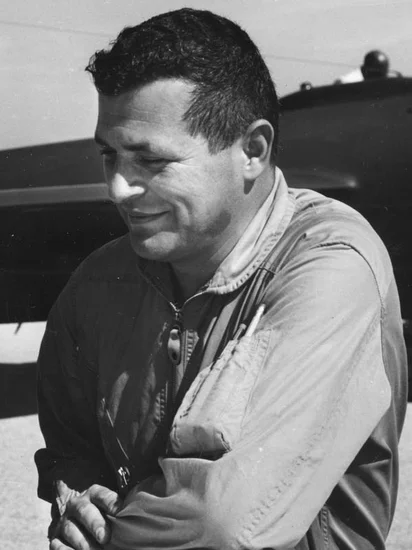
American pilot Francis Gary Powers was born in Kentucky, destined to become a central figure in Cold War espionage. His career as a CIA pilot would make him an international household name.
Powers’ capture after his U-2 spy plane was shot down over the Soviet Union created a major diplomatic crisis. His eventual prisoner exchange became one of the most famous Cold War spy swaps.
1970 – Jim Courier Born

American tennis champion Jim Courier was born in New York, beginning a journey to tennis greatness. His powerful baseline game would dominate professional tennis in the early 1990s.
Courier’s four Grand Slam victories and rise to world number one established him as one of America’s greatest tennis players. His intense training regimen and mental toughness inspired a generation of athletes.
Notable Deaths on August 17
1988 – Muhammad Zia-ul-Haq Dies
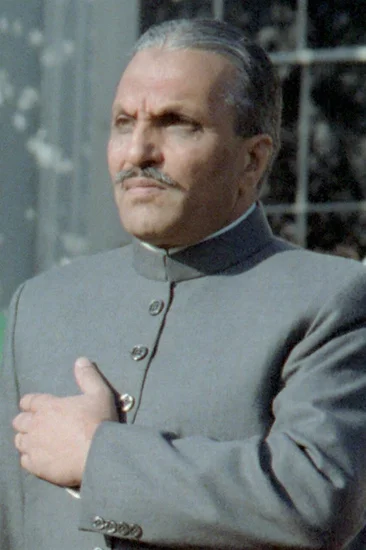
Pakistani President Muhammad Zia-ul-Haq died in a mysterious plane crash along with U.S. Ambassador Arnold Raphel. The crash occurred near Bahawalpur, Pakistan, under circumstances that remain controversial.
Zia-ul-Haq’s death ended eleven years of military rule in Pakistan and opened the door for democratic restoration. His demise significantly altered South Asian geopolitics and Pakistan’s relationship with the United States.
1987 – Rudolf Hess Dies
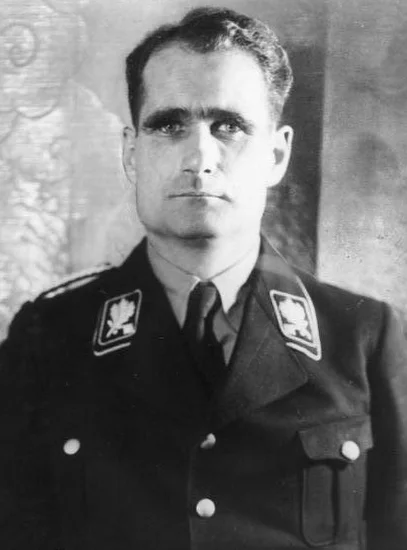
Nazi war criminal Rudolf Hess died in Spandau Prison at age 93, ending one of history’s most unusual imprisonments. Hitler’s former deputy had been imprisoned since his capture following his bizarre 1941 flight to Scotland.
Hess’s death closed the final chapter on the highest-ranking Nazi officials. His four-decade imprisonment represented the lasting consequences of Nazi war crimes and the Nuremberg trials’ significance.
1979 – Vivian Vance Dies

Beloved actress Vivian Vance died of cancer at age 70, ending a career that brought joy to millions. Her role as Ethel Mertz on “I Love Lucy” made her one of television’s most recognizable comedic performers.
Vance’s partnership with Lucille Ball created some of television’s most memorable moments. Her comedic timing and chemistry with the cast helped establish the template for modern television situation comedy.
1990 – Pearl Bailey Dies
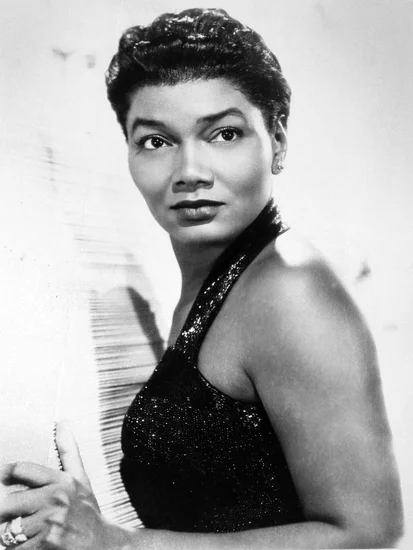
Entertainment legend Pearl Bailey died at age 72, concluding a remarkable career in music, film, and theater. Her distinctive voice and vivacious personality made her one of America’s most beloved performers.
Bailey’s achievements included Tony Awards, Grammy nominations, and groundbreaking performances that helped break racial barriers in entertainment. Her legacy as both performer and humanitarian continues to inspire artists today.
1983 – Ira Gershwin Dies

Legendary lyricist Ira Gershwin died at age 86, ending a career that helped define American popular music. His collaboration with brother George Gershwin produced some of the most enduring songs in American culture.
Gershwin’s sophisticated wordplay and clever rhymes elevated popular songwriting to an art form. His lyrics for classics like “Summertime” and “The Man I Love” remain cultural touchstones nearly a century later.
Holidays and Observances on August 17
Independence Day (Indonesia)

Indonesia celebrates Independence Day on August 17, commemorating the 1945 proclamation of independence from Japanese occupation. The holiday honors Sukarno and Mohammad Hatta’s courageous declaration that launched the Indonesian National Revolution.
Indonesians celebrate with flag ceremonies, parades, and traditional competitions throughout the archipelago. The day represents national unity and the struggle for freedom that shaped modern Indonesia.
Engineer’s Day (Colombia)
Colombia observes Engineer’s Day on August 17, recognizing the vital contributions of engineers to national development. The holiday celebrates the profession’s role in building infrastructure and advancing technological progress.
Colombian engineers are honored for their work in construction, telecommunications, and industrial development. The day promotes engineering education and recognizes the field’s importance to economic growth.
Christian Feast Days
August 17 marks several important Christian feast days, including Saint Hyacinth of Poland and Saint Mammes of Caesarea. These observances honor martyrs and saints who made significant contributions to Christian faith and culture.
The Eastern Orthodox Church also observes specific liturgical celebrations on this date. These religious observances connect modern believers with centuries of Christian tradition and spiritual heritage.
